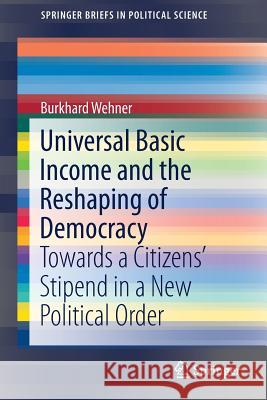Universal Basic Income and the Reshaping of Democracy: Towards a Citizens' Stipend in a New Political Order » książka
topmenu
Universal Basic Income and the Reshaping of Democracy: Towards a Citizens' Stipend in a New Political Order
ISBN-13: 9783030058272 / Angielski / Miękka / 2019 / 61 str.
Universal Basic Income and the Reshaping of Democracy: Towards a Citizens' Stipend in a New Political Order
ISBN-13: 9783030058272 / Angielski / Miękka / 2019 / 61 str.
cena 201,72
(netto: 192,11 VAT: 5%)
Najniższa cena z 30 dni: 192,74
(netto: 192,11 VAT: 5%)
Najniższa cena z 30 dni: 192,74
Termin realizacji zamówienia:
ok. 22 dni roboczych
Bez gwarancji dostawy przed świętami
ok. 22 dni roboczych
Bez gwarancji dostawy przed świętami
Darmowa dostawa!
Kategorie BISAC:
Wydawca:
Springer
Seria wydawnicza:
Język:
Angielski
ISBN-13:
9783030058272
Rok wydania:
2019
Wydanie:
2019
Ilość stron:
61
Waga:
0.11 kg
Wymiary:
23.4 x 15.6 x 0.4
Oprawa:
Miękka
Wolumenów:
01
Dodatkowe informacje:
Bibliografia
Wydanie ilustrowane
Wydanie ilustrowane











